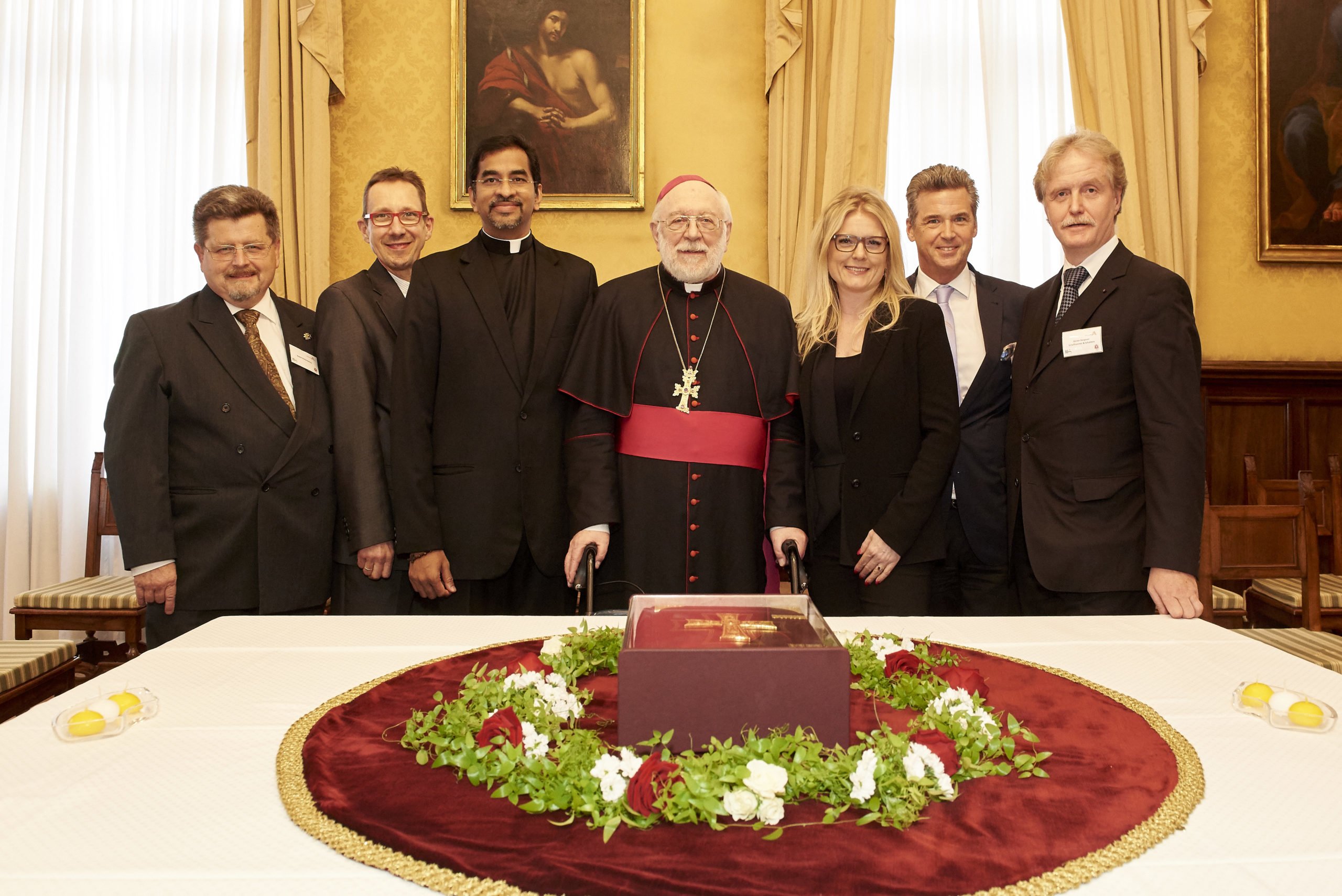- Christian social doctrine and economic success are no contradiction
- Doing business ethically means thinking long term
- Values provide stability in times of upheaval
The virtues of Christian social doctrine and economic success still are frequently seen as a contradiction. The fact that this is by no means the case and that value-oriented corporate management has a long-term impact both on a monetary level, for example in more profits, as well as on a non-monetary basis, for example in greater employee satisfaction, was the core message of an in-depth talk organised by Leitbetriebe Austria at the Apostolic Nunciature of Austria. Pontifical Nuncio and Archbishop Peter Stephan Zurbriggen emphasised the importance of ethical issues for company practice. It is gratifying that these were discussed by top Austrian business representatives on the premises of the Catholic Church, he said.
Family businesses exemplify business ethics
“The German word “Wirtschaft” (Business) literally means ‘to create value'”, said Leitbetriebe Austria Managing Director Monica Rintersbacher. “This already shows that business and ethics need not stand in conflict with one another. The orientation of business toward success and the ethical / moral standards of Christian social doctrine are entirely compatible. “This is exemplified in daily business life especially by family-run enterprises”, Rintersbacher says. “Those who live by moral principles in private life will also orient themselves around them in business activity as best they can. The fact that these companies are more stable and successful in the long-term than the economy on average certainly shows it’s not hurting them”.
Christian social doctrine and a “moral compass”
Anton Burger, a professor at the Catholic University of Eichstätt-Ingolstadt and a doctor of economy, theology and law, points to the commonalities between ethics and economics; after all, Adam Smith, the founder of classical economics, was a moral philosopher. “Today there is also consensus that cooperation is individually and socially more advantageous than purely egoistic competition. For this, however, a ‘moral compass’ in the sense of common values and a common ethos in society is needed. This stems largely from Christian social ethics in Europe.” It is therefore the responsibility of the institution of the Church and the individual Christian to actively participate in social discourse.
Acting ethically means thinking in the long term
Günter Bergauer, director of the Church-related bank Schelhammer & Schattera, emphasises the responsibility of the individual. “The orientation of business activity towards short-term goals proved to be a major weakness in our economic system at the time of the financial crisis just ten years ago. The basic prerequisites for ethical action are trust and responsibility. Taking ethical values into consideration almost inevitably results in an orientation toward long-term goals and is therefore an important guideline for one’s own actions in times of limited management contracts and short-term benchmarks”.
Values remain current
Andreas Gnesda, managing director of teamgnesda, which is involved in designing meaningful working environments, emphasises that values have not lost their relevance, even in the 21st century. “Values are anything but stale. Values such as responsibility, self-initiative and appreciation are extremely popular, as they provide support and orientation to the individual, especially in times of upheaval in the working world – think digitalisation or innovation. An appealing working environment can be an expression of this appreciation, but here too, the reorganisation of office space is only of true value if it also reflects the corporate culture that is already practiced”.
Copyright: Sabine Klimpt






